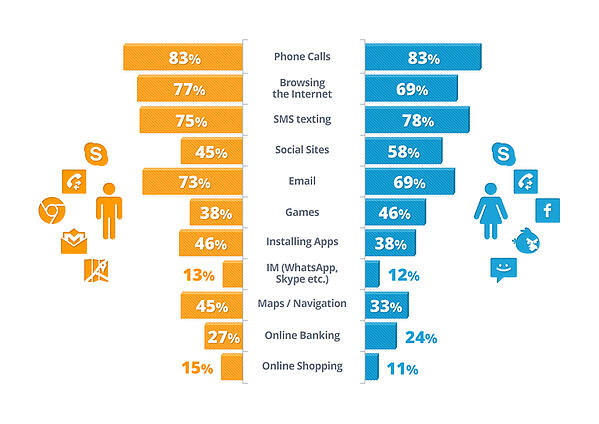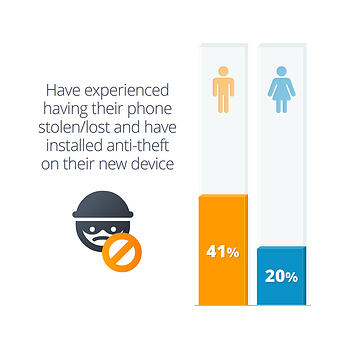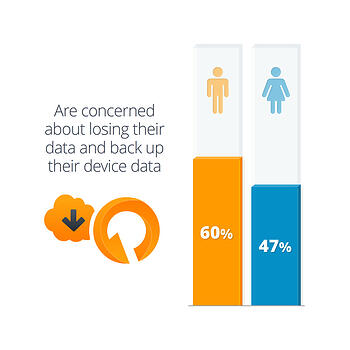Men are better than women at keeping their phones and the data on it safe.
Which sex is better at securing their smartphone from thieves or data loss?
Personal contacts, photos, videos, apps, emails, text messages -- smartphones today contain a plethora of personal information, and the thought of losing or having a smartphone stolen is extremely worrisome to many people. Our security research team recently conducted a survey of 167,904 customers worldwide and found that consumers in the United States are among those most likely to lose or have their phone stolen.
We then wondered, who is affected more by a stolen or lost cell phone in the US, men or women?
Men carry out more security sensitive transactions on their phones

Men in the US use their smartphones more often to take care of online banking, download apps, and believe it or not, shop more than women do. Women, on the other hand, use their smartphones more to text and to connect with friends on Facebook and other social networking platforms.
Now, the logical conclusion would be that men are more at risk if they were to lose or get their cell phone stolen. You might think that online banking and credit card information stored in browsers and apps would be more appealing to smartphone thieves than personal information, status updates, and maybe even gossip. But that is simply not the case.
Men are twice as careful as women when it comes to their phones

Our study found that, although men and women in the US face the same risk of having their phones stolen as losing them, men are more protective of their data and devices than women are.
As many as 60% of men frequently back up their data, compared to 47% of women who do the same. Nearly half of the male respondents who admitted to using their phone to do online banking and shopping have antivirus installed on their device, whereas only 38% of female respondents claimed the same.
Even more surprising, 21% more men have an anti-theft solution installed on their device than women.

These results show that despite the fact that men perform more sensitive transactions on their smartphones, they are less at risk of having their data used in a malicious way if their device were to get stolen or lost, because they have anti-theft solutions installed more often.
Women, on the other hand, are more at risk if their smartphone is stolen or lost, because they do not protect their personal data and information as well as men do. Personal information can be used against someone for identity theft just as easily as bank information could and should therefore be protected and guarded the same.
Ten years ago, losing or having a cell phone stolen was not a big deal, the most that was lost were your contacts and maybe a few text messages, but all of that has changed. Smartphones now contain a history of our digital lives. We suggest that consumers think of and treat their smartphone as they would their wallet. Most people take extra special care of their wallets by keeping them in safe places, like a safe or close to their body. This same mindset now needs to be applied to mobile devices.